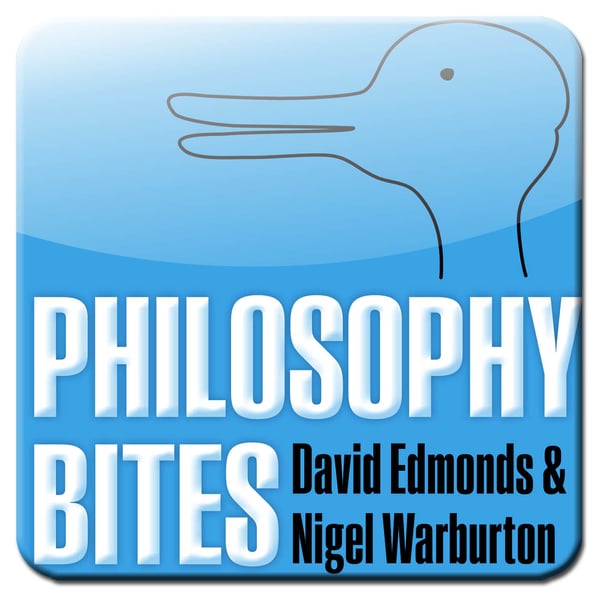Robert Talisse on Civic Solitude
Philosophy Bites
Nigel Warburton
4.6 • 2K Ratings
🗓️ 30 July 2025
⏱️ 18 minutes
🧾️ Download transcript
Summary
Democracy is about acting as a group, but, surprisingly, Robert Talisse argues that what it needs to function well is a degree of solitude for citizens. In-group and out-group dynamics mean that individuals become vulnerable to being pushed towards more extreme views than they would otherwise hold. There is, Talisse, maintains, a need to balance times of thinking together with times of thinking alone, at a distance from the fray.
Transcript
Click on a timestamp to play from that location
| 0:00.0 | This is Philosophy Bytes with me Nigel Warburton. |
| 0:05.8 | And me, David Edmonds. |
| 0:07.3 | If you enjoy Philosophy Bites, please support us. |
| 0:10.4 | For details, go to www.philosophybites.com. |
| 0:14.5 | When we think of democracy, we tend to think of parliaments, political parties, election campaigns, speeches and rallies and so on, |
| 0:22.4 | all part of the public domain. Robert Thelies believes that democracy should also contain |
| 0:28.5 | a private or solitary component. Robert Thelis, welcome to Philosophy Bites. Hi Nigel, thank you for |
| 0:34.8 | having me. The topic we're going to focus on is civic solitude. What is that? |
| 0:40.3 | I think that there are distinctive duties that are civic that can be discharged only in isolation from others. |
| 0:50.5 | That's interesting because generally when we think of civic duties, their collective is a sense of |
| 0:56.9 | a group of people combining to take some kind of action. Yeah, and there's good reason for that. |
| 1:03.3 | Democracy, after all, is about collective self-government. It's about holding government to account. |
| 1:09.9 | It's about civic responsibility, which is |
| 1:12.4 | often collective. Turns out, though, that those collective public faces of our civic duties are not |
| 1:20.6 | exhaustive. Democracy in being a system by which we rule collectively as political equals requires of us that we understand one another. |
| 1:34.4 | And it turns out that collective public democratic action can obstruct our ability to understand one another. |
| 1:45.0 | So I'm imagining people turning out for a general election. |
| 1:49.0 | They all are in the streets queuing up to put across on a ballot paper. |
| 1:54.0 | They're collectively expressing their will. |
| 1:58.0 | What could possibly go wrong with them doing it collectively? Surely they can't do it |
| 2:01.8 | individually? Right. Well, what can go wrong is what brought them to the political views that |
| 2:06.2 | they're trying to express. We are groupish creatures. This is not an uncommon thought. And our groupishness, |
... |
Transcript will be available on the free plan in 24 days. Upgrade to see the full transcript now.
Disclaimer: The podcast and artwork embedded on this page are from Nigel Warburton, and are the property of its owner and not affiliated with or endorsed by Tapesearch.
Generated transcripts are the property of Nigel Warburton and are distributed freely under the Fair Use doctrine. Transcripts generated by Tapesearch are not guaranteed to be accurate.
Copyright © Tapesearch 2025.

